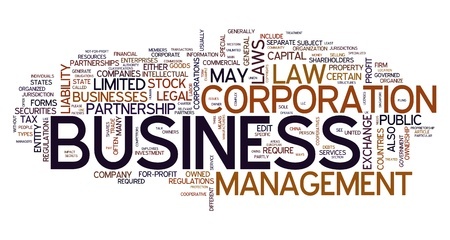
The day you come up with a great new idea for your internet business, you rush to the nearest computer to register a domain (assuming it’s available), and voila, your internet business is born.
Unfortunately, most internet entrepreneurs don’t have the happy ending that all of you are looking for. A quick google search of “what percentage of internet businesses fail?” indicates a slew of articles showing anywhere from 80%-97% failure rate for online businesses.
But… let’s say for the sake of argument that you are in that small minority of internet businesses that actually do succeed. (Hey, I’m still an optimist!) What can you do, from a purely legal standpoint, to not only increase your odds of success, but also protect your business after you do become a success?
Do these things and don't make the common mistakes online entrepreneurs make
Here’s a quick list of 3 things you can do to protect your business AND increase your likelihood for success at the same time.
1. Take some time to properly validate your business idea.
Do yourself a favor and validate your business idea with at least 20 members of your target market before you even start to consider registering that domain name.
Ok, this isn’t a legal tip, but it’s certainly a good practical tip that you should take note of. And failing to properly validate a business idea is one of the single biggest causes of failure for an online business. You rush out there, ready to hit the market with the next biggest business idea since sliced bread, (or so you think), only to be met with complete and utter silence from the market.
Unfortunately for you, you are dead in the water before you even got a chance to turn the motor on…Idea validation is a crucial component to business success, which is why I list it number one on this list of common entrepreneurial pitfalls.
Most, if not all, of the most successful internet entrepreneurs out there have learned from this mistake before becoming successful in their internet businesses.
Ramit Sehti, author of “I Will Teach You to Be Rich,” even goes so far as to share with his audience some of his catostrophic business failures.
Don’t make this simple and easily avoidable mistake. Do yourself a favor and validate your business idea with at least 20 members of your target market before you even start to consider registering that domain name.
2. Make sure that you aren’t violating someone else’s intellectual property.
Ok. So let’s say that you did come up with a pretty good idea, and that you have validated that idea with the market. What’s next?
You have to come up with a name.
One of the most important steps in choosing a business name is to make sure you aren’t choosing a name that is already protected by another competing business. What do I mean by this?
Well, let’s say you have a great idea for a doggie daycare center. You’ve researched your market, and have talked to lots of your friends who just happen to be dog owners, and they can’t wait to come visit your new doggie daycare. So you invest some capital, rent some space, and within a couple of weeks you are opening the doors to “Starbarks”, a dog daycare center in Algonquin, Illinois.
Let’s fast-forward a couple months. Things are going well, you are making sales, life is good. You can see the light at the end of the tunnel. Maybe this entrepreneurial thing can actually work?
Hold on… not so fast. Sooner or later, you can bet that you will be on the receiving end of a nice thick letter from a big, fancy law firm who represents a coffee company from Seattle. Affectionately referred to as a “cease and desist” letter, you should trust me when I say that these are not your idea of pleasure reading.
If you were the proprietor of Starbarks, it turns out that you were infringing on the intellectual property of Starbucks.
(Note: this is a special case. Typically, to infringe on a trademark you would have to be engaged in the same type of business as the company whose mark you are infringing upon. That was obviously not the case here. Rather, this is a “dilution” case under federal law. I'll save that topic for another day.)
What’s the lesson here?
You absolutely, positively, MUST make sure you research all potential names before starting your business under a specific trade name. If you have picked a name that is registered to another business that competes in your market, it could mean big trouble for you.
Here are just a few of the potential consequences of violating someone else's intellectual property, which could easily run into the thousands of dollars just to comply with the cease and desist letter:
- Contacting/hiring a lawyer for legal advice and support;
- Changing your business name with your state's Secretary of State (including filing fees);
- Changing all the signage and packaging for your website/online store/retail location;
- Changing all of your online bank accounts (after possibly losing access to them while attempting to comply with the cease and desist letter); and,
- Notifying all of your clients and customers of the change, and hoping they don't get confused…
3. You must make sure you protect your own intellectual property.
Ok, so lets say you have good business idea, and no one else is using the name you chose – now what? You must protect your own intellectual property. I know what you are thinking… “that sounds great, how do I do that?”
Here are a few ideas:
- File all appropriate trademarks, copyrights, patents, etc. as soon as you possibly and practically can.
- Begin using the copyright symbol immediately as a way to let others know you intend to enforce all rights to your copyright if your work is ripped off.
- Make sure that all of your contracts, including NDA’s, employment/independent contractor agreements, licenses, and sales contracts contain language that protect your intellectual property and trade secrets.
- Make sure your website is up-to-date with it’s Terms of Service, Privacy Policies, and Legal Disclaimers. In addition, I recommend you consider placing a “permissions” page on your website that discusses what people can and can’t do with the information on your website, both with and without your permission. (Click here to take a look at ours for an example).
- When in doubt, contact an lawyer that can help you protect your intellectual property and make sure you aren’t violating anyone else’s intellectual property. (Hint, we can do that for you…)
If you are interested in learning more, please schedule a paid consultation by clicking here.
PLEASE NOTE: We are NOT currently accepting new intellectual property clients, but we would be happy to schedule a paid consultation with you using the link above to get you started in the right direction.



